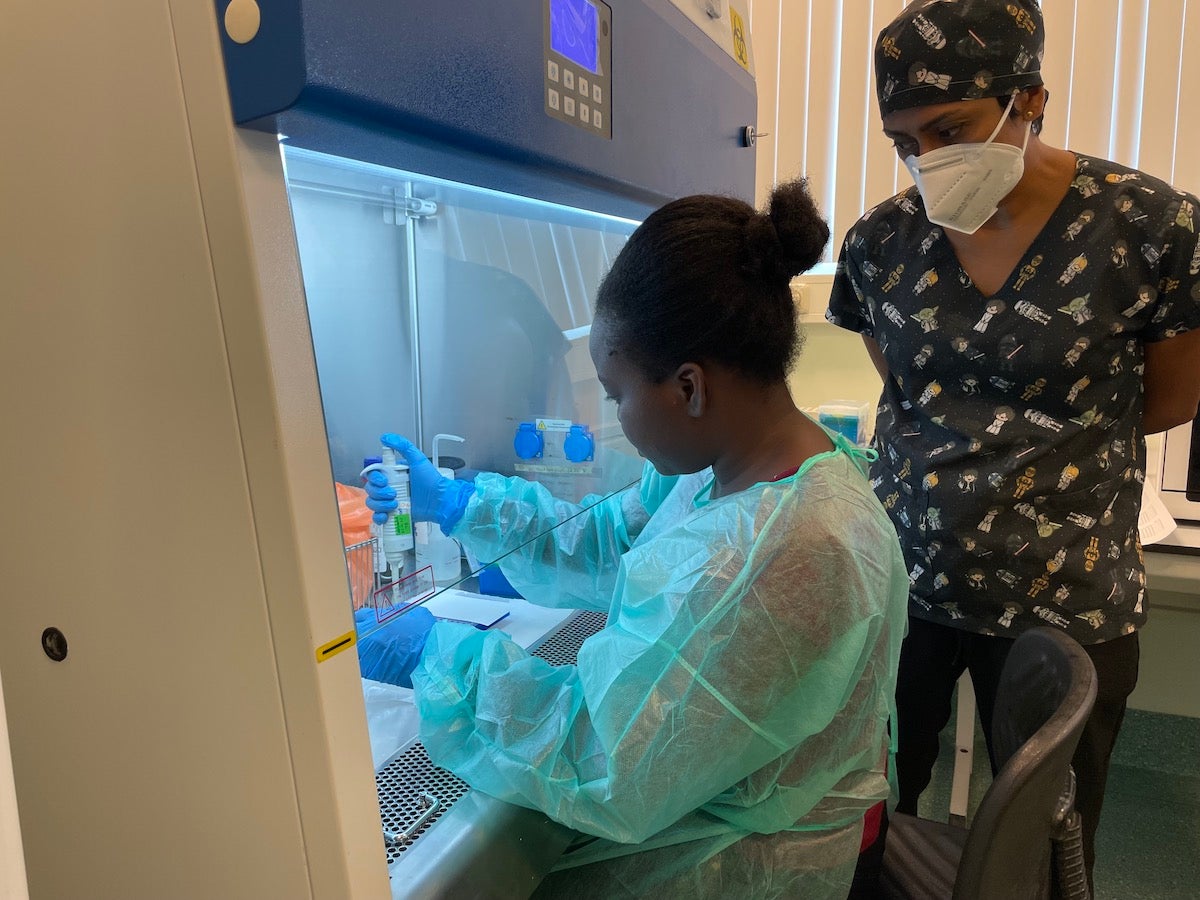
Suriname, 16 October 2023 (PAHO/WHO) – From October 9-11, the Bureau of Public Health (BOG) and the Pan American Health Organization (PAHO) embarked on a crucial mission to enhance the capabilities of local health technicians in the detection of emerging arboviruses, including Mayaro and Oropouche viruses, in Suriname.
In the Central Laboratory of Paramaribo, technicians from the BOG and Academic Hospital were engrossed in a hands-on training session, meticulously designed and executed by a team of experts dispatched by PAHO. The team, comprising Dr. Lionel Gresh, an International PAHO Consultant; Dr. Felipe Naveca, an Investigator from FIOCRUZ (Brazil); and Dr. Matilde Mejía, a Biotechnologist from FIOCRUZ, brought to the table a wealth of knowledge and practical expertise in the realm of arbovirus detection.
The three-day training was not merely an educational endeavor but a practical, hands-on experience where participants were submerged into the intricate world of arboviruses. They were guided through the nuances of detection protocols, engaged in practical laboratory sessions, and participated in insightful discussions, ensuring a comprehensive learning experience.
Dr. Felipe Naveca, who coordinates the Laboratory of Arboviruses and Hemorrhagic Viruses (LARBOH) in Rio de Janeiro and the Laboratory of Emergent, Reemergent or Neglected Viruses (ViVER) in the Amazonas State - both reference labs for Brazilian Ministry of Health - provided a deep dive into the molecular and virological aspects of the viruses in question, ensuring that participants were well-versed in the theoretical underpinnings of their practical work. The training was not only a platform for knowledge dissemination but also a forum for dialogue and discussion, where participants could share their experiences, challenges, and insights with the expert team. This interactive approach fostered a rich learning environment, ensuring that the technicians were not merely recipients of knowledge but active participants in a collaborative learning journey.
The initiative, supported by PAHO in the context of the Arbovirus Diagnosis Laboratory Network of the Americas (RELDA), was a testament to the power of collaborative action in the face of public health challenges. The knowledge and skills imparted during these sessions have significantly bolstered the diagnostic capabilities within Suriname, enhancing the nation’s capacity to detect and respond to potential arbovirus outbreaks effectively.
This collaborative effort not only fortifies our collective capabilities to manage existing arboviral threats but also prepares us to adeptly navigate the challenges posed by emerging pathogens in the future." - Dr. Lionel Gresh
The BOG of the MOH and PAHO/WHO, through initiatives like this, continue to underscore the imperative of continuous learning, collaboration, and preparedness in managing the multifaceted challenges of infectious diseases in the region. The technicians, now equipped with enhanced skills and knowledge, stand as a strengthened frontline defense against arboviral threats in Suriname, ensuring that the nation is better prepared to safeguard the health and well-being of its populace amidst the evolving landscape of global health challenges.





